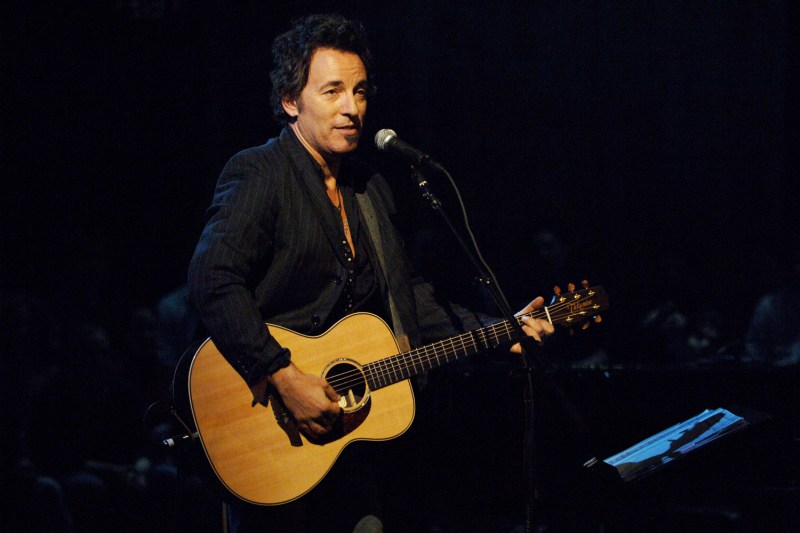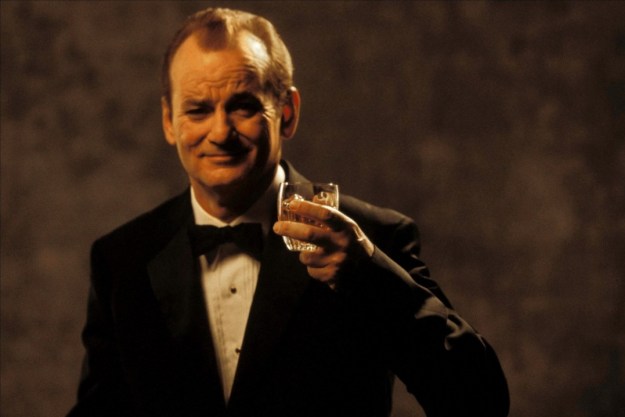
If a hallmark trait of a great musician is the ability to do it all, Nebraska makes Bruce Springsteen one of the best. The album, released in 1982, was the sixth full-length by The Boss and offered a stark departure from the band-driven pop-rock he’d become famous for.
The album cover reads like a preface to the record itself. It shows a desolate road, disappearing into a horizon of grassy plains and gray skies. It’s shot from the dashboard of a car, with a thin layer of snow on the windshield. You can feel the chill, the lostness, the hopelessness, the rawness — all before the music even begins. For anybody who’s driven the backroads of the Cornhusker State, it’s hauntingly familiar. And the blood-red, all-caps font suggests big trouble ahead.
Recorded by Springsteen on a four-track as a demo, Nebraska was originally set to be fleshed out. The E Street band was to inject the tracks with its signature energy and arena-rock prowess but, as it turned out, the original recording proved too valuable on its own. The delicate nature of the album was so personal and poetic, Springsteen opted not to tour around it (something he’s only done twice, along with 2019 release Western Stars).

The band convened for a Nebraska recording session but in the end, it was just the singer-songwriter’s voice and instrumentation that made the cut (and so good was that session that it produced eight of the twelve tracks on Springsteen’s next and most popular album, Born in the U.S.A.). The Boss not only sang, but manned the guitar, mandolin, glockenspiel, harmonica, tambourine, organ, and synth. It’s a clinical lesson in overdubbing and layering as well as powerful testament to what the cleverest musicians can do with a mere three chords.
For a globally recognized musical force, retreating to the bedroom was atypical indeed. What’s more, the Boss’s blue-collar themes took a turn towards darker, more brooding territory. It’s still the working class, but the unsung, had-it-up-to-here, sometimes violent members of this category. Nebraska’s main characters were murderers and criminals, sentenced to death or a life of hardship.
The record opens with the woeful pangs of the harmonica in the title track, sounding something like a rusty screen door or the distant cry of a coyote. It’s a telling first impression that foreshadows dread, broken spirits, and the gut-punching sensation of being severely hard done by. The song is about Charles Starkweather, who killed eleven people in the late 1950s in Nebraska and Wyoming. And yet, in this song and the whole of the album, it’s less down-and-out than plain and brutally honest. Writers, especially, are captivated by the quiet confidence this record exudes.
“Atlantic City” is a gorgeous piece of melodic folk, deeply affected by the dreamy mandolin. It beautifully articulates the many gambles of life and offers a little optimism in the form of going out on the town, for the sole sake of going out on the town. Springsteen layers his own vocals to haunting effect and some of the lines are impossibly good:
Everything dies, baby that’s a fact
But maybe everything that dies some day comes back
Put your makeup on, fix your hair up pretty
And meet me tonight in Atlantic City
The echoing plea of “State Trooper” is terribly moving (“please don’t stop me”), before the gentle bouncing of the acoustic guitar. It sounds like the rhythmic bumps of a beat-up open road at night, with Springsteen howling at the moon and an ominous feeling of profound guilt. Meanwhile, “Open All Night” presents a rare instance where Springsteen plugs in and plays a formative rock ‘n’ roll-style riff. It’s a glance at the rearview mirror; an homage to the likes of Chuck Berry and Buddy Holly.
Nebraska is not only a heartfelt piece of singer-songwriter gold, it’s practically journalistic, revealing The Boss as an entrenched member of a troubled American landscape. The listener can feel the plight of the “bad guys,” thanks to Springsteen’s vocal charisma but also because of the lyrics, which often read like the work of a deft newspaper reporter.
The record established Springsteen as a real troubadour, with Woody Guthrie’s observational skills, Dylan’s folky masterclass, and a grit that’s entirely his own. The reverberating twang of America was forever changed, made sobering and so real that it can be a little scary. If there was an intimate soundtrack to the underbelly of small-town American life, this is it.
Just about every album is better in solitude with your favorite pair of headphones but this one really resonates. Nebraska invites Springsteen into your living room to tell some truly stunning stories, to the tune of restrained and incredibly emotive heartland folk.
Editors' Recommendations
- The 15 Best Christmas Albums to Listen to This Year
- 10 Albums from the 2000s That Need a Relisten
- Revisiting Classic Albums: Bob Dylan’s Highway 61 Revisited
- Revisiting Classic Albums: Dark Side of the Moon by Pink Floyd


